Goodbye, Ithaca. Goodbye, Cornell.
I have finished my Cornell job and moved out of Ithaca, NY for a new life chapter.
TL;DR: I have finished my Cornell term of employment and moved out of Ithaca, NY for a new life chapter.
But if you care to read past the headline, go on.
Often, I’ve wondered what this post about a good-bye to Ithaca and Cornell would feel like. They have given me a lifetime of lessons in only two years.
Summarily, Ithaca was kind to me during a life chapter where I needed to learn to be kinder to myself.
The pandemic had not been kind to me before I moved to Ithaca. I closed InCommon and had a hard landing. I had to battle back from zero in multiple areas - that is a story for the book someday - and the next few years meant serious rebuilding.
Opportunity emerged to move from Texas to Ithaca, New York in 2022. I did something I never thought I’d do, and only other people do. I packed my belongings into my car and moved halfway across the country to be with a woman.
New was good for me. More than just a new relationship, Ithaca represented a jump into the unknown. For too long, I felt like I was just connecting the dots, but not enough collecting. Three years earlier, I’d moved out of Texas for the first time, but it was to incubate my company at the Harvard Innnovation Lab’s Venture Incubation Program. Returning to the Northeast would be exciting, but also a different type of uncertainty.
It was, in other words, a risk. Nevertheless, as a lifelong entrepreneur, I’m no stranger to risks, but I had become uncharacteristically risk-averse. I felt I needed to push back against the universe and take risks again. To be me again.
I’ve been long intrigued by how life could be radically different not by walking down hallways given to us, but taking a side door to the new and unknown. And I believe you need to take asymmetric bets to deserve asymmetric rewards. (For inspiration, see Jeff Bezos’ regret minimization framework, Alex Banyan’s The Third Door, and the hugely influential Asian-American movie Everything Everywhere All At Once)
Yet again, I chose to take a side door. Instead of choosing A or B, I created C.
I’m glad I bet on myself and took that leap into the unknown. Ithaca is breathtakingly beautiful, especially the natural areas - some say Ithaca is gorges. I was lucky to live next to Cascadilla Gorge and Cornell campus, and at another point, I lived next to a state park. Photos truly do not do the views justice, and they are everywhere. Winters were long and bitter, but I’ve always relished a certain primal simplicity that snow brings.
But for all of Ithaca’s natural beauty, it’s the people who make Ithaca special. To all my Ithaca friends (and by extension, Upstate NY, Philly, and Western Mass), thank you for welcoming and supporting me. There’s a certain charm in Upstate New Yorkers, and I feel more alive because of you. (Shoutout to the LBGTQ community - you taught me bravery)
As for life itself, my first year in Ithaca was hard. First years of anything new are always hard. This time, I was making huge adjustments in multiple life categories - very much building the plane in midair - and I got some things right and many things very wrong.
The next six months were harder.
As a mentor at Cornell, I got to give back to the next generation of startup founders at the undergraduate, Master’s and PhD levels.
Cornell also represented a foray into the new in many ways - for example, I was an employee for the first time in a very long time, inside one of America’s largest employers no less, and I’d never had a job in academia. Because of my job, I could enter many unexpected conversations - it became more of a test of how much permission I could give myself to be bold and brave.
I battled major imposter syndrome every step of the way. Even before I officially started my Cornell job, I was dropped into a room full of STEM Masters’ and PhD students working on biotech startups and tasked with understanding enough of the science to respect it and challenging the founders to grow on the business side. I had about a minute to comprehend work built on years of experience from Ivy League researchers, and then lead and frame the ensuing conversation on startup growth. I’ve lived a lifetime of punching above my weight class and improvising through obstacles, but this was really skipping past the bunny slopes.
I told myself that every time I confronted my imposter syndrome, no matter if I was talking with mentees, PhD’s, or VC’s, I was in that conversation for a good reason - often because I had something valuable to contribute - and that I’d emerge a better person for it. I believe that as you work the work, the work works you, and by confronting a negative vector, you can harness the scalar and transform it into a positive vector to be channeled. I grew so much from throwing myself into the work.
My mentees were terrific - one even wrote a glowing recommendation letter, and another was an Asian founder of a mental health startup. It’s interesting to see up close universalities of the human experience, even at the highest levels. It doesn’t matter what tax bracket you came from - eventually, everyone strains from the startup journey. I am proud that I got to impact many young entrepreneurs.
By and large, my colleagues were brilliant and kind. Cornell is lucky to have them, and I’m grateful to have worked alongside them.
I’m grateful for the opportunity to apply insights from the trenches to impact my mentees, whose startups spanned digital health, biotech, consumer, apparel, and food+ag . I also applied my skills via judging startup competitions at Harvard, UT-Austin, Cornell, and LaunchX Entrepreneurship Program, an MIT spinout.
Several recurring lessons included:
(1) Startups must invest more in customer discovery, go-to-market strategy, and customer segmentation. Also, consider channel partners - ie, an extra growth channel.
(2) Many founders overcommit to product while in pre-revenue or early revenue stages, overbuilding for what they want when early customers actually influence the feature set. Think rigorously through your customer's *specific* pain point - ie, the job to be done, what they’ve spent money on in search of a solution, and how you meet that need.
(3) In split models where the customer and end-user are separate, carefully weigh value propositions to each stakeholder and their incentive structures. Healthtech startups especially should not overlook clinical workflows and how non-obvious stakeholders (ie, nurses or coordinators) have to adjust to using your widget.
Outside of work, Cornell was fascinating to explore. I spent sunsets on the Slope and studied in buildings that looked like Hogwarts. I went to a hockey game. I sat in on lectures. I attended conferences. I got to meet a wide variety of people, from playing on Cornell’s Ultimate Frisbee team to becoming friends with some deans. I got to see extremes of inequality. I learned different types of code-switching while I worked to strengthen my own voice.
I also reclaimed my identity. I went from “retirement” from powerlifting - candidly, I hadn’t been a gym-goer in years - to joining a gym and eventually belt squatting 900 pounds before I left. Doing hard physical things imparts the strength and resilience to take on hard things elsewhere.
All of this took work - all while battling and replacing many unhealthy assumptions about work. I lost myself, and I remembered long-lost parts of myself. I’m reminded of Iron Man 3, where Tony Stark must rediscover his identity without Iron Man. In one scene, parts of Tony’s suit fly toward him, and some parts land cleanly on him, and others… not so cleanly. My experience felt like that.
I am so grateful to have experienced Ithaca and Cornell. I learned. And I learned how I learned. I learned that life’s richness is often a function of how many uncomfortable situations you have and areas of avoidance you confront. Through it all, I’m thankful for friends who I can count on to call.
Ithaca, thank you for being kind. Cornell, thank you for challenging me.
Onward to new oceans and horizons!

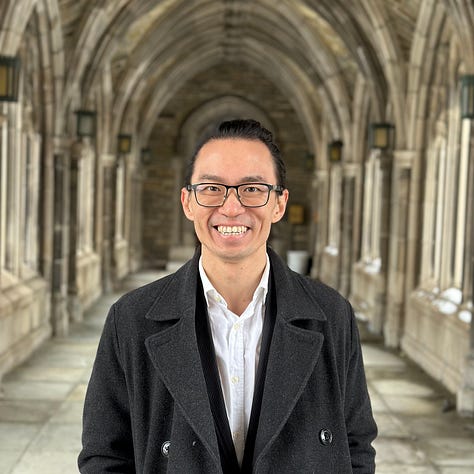
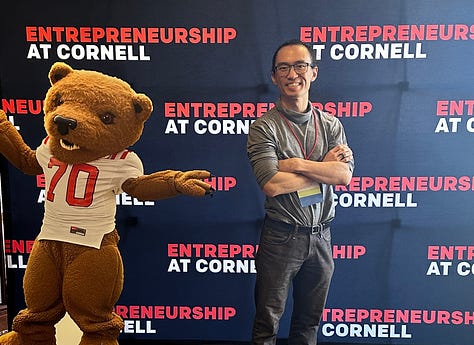
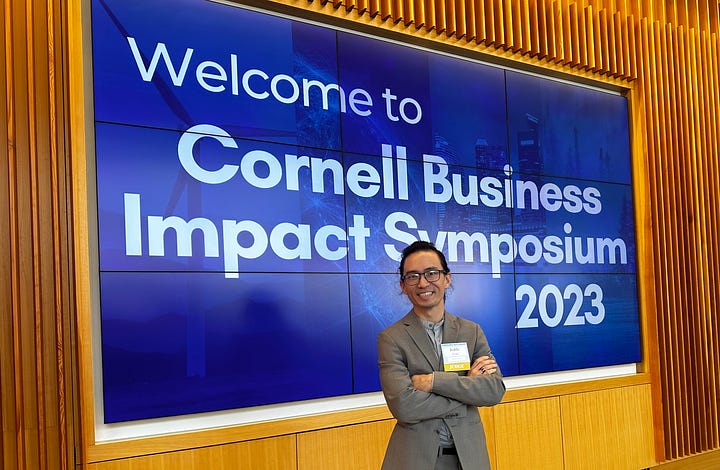
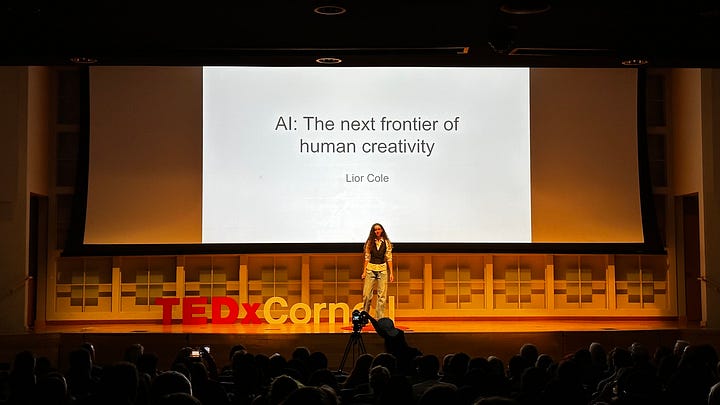
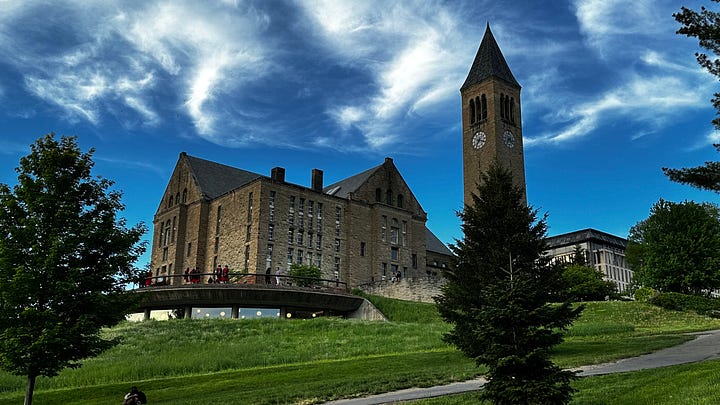
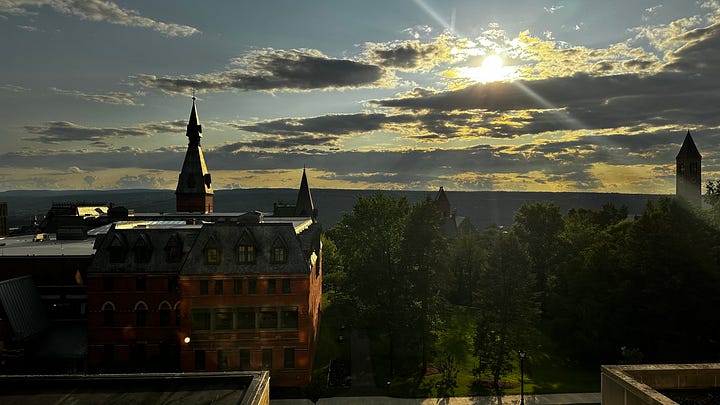



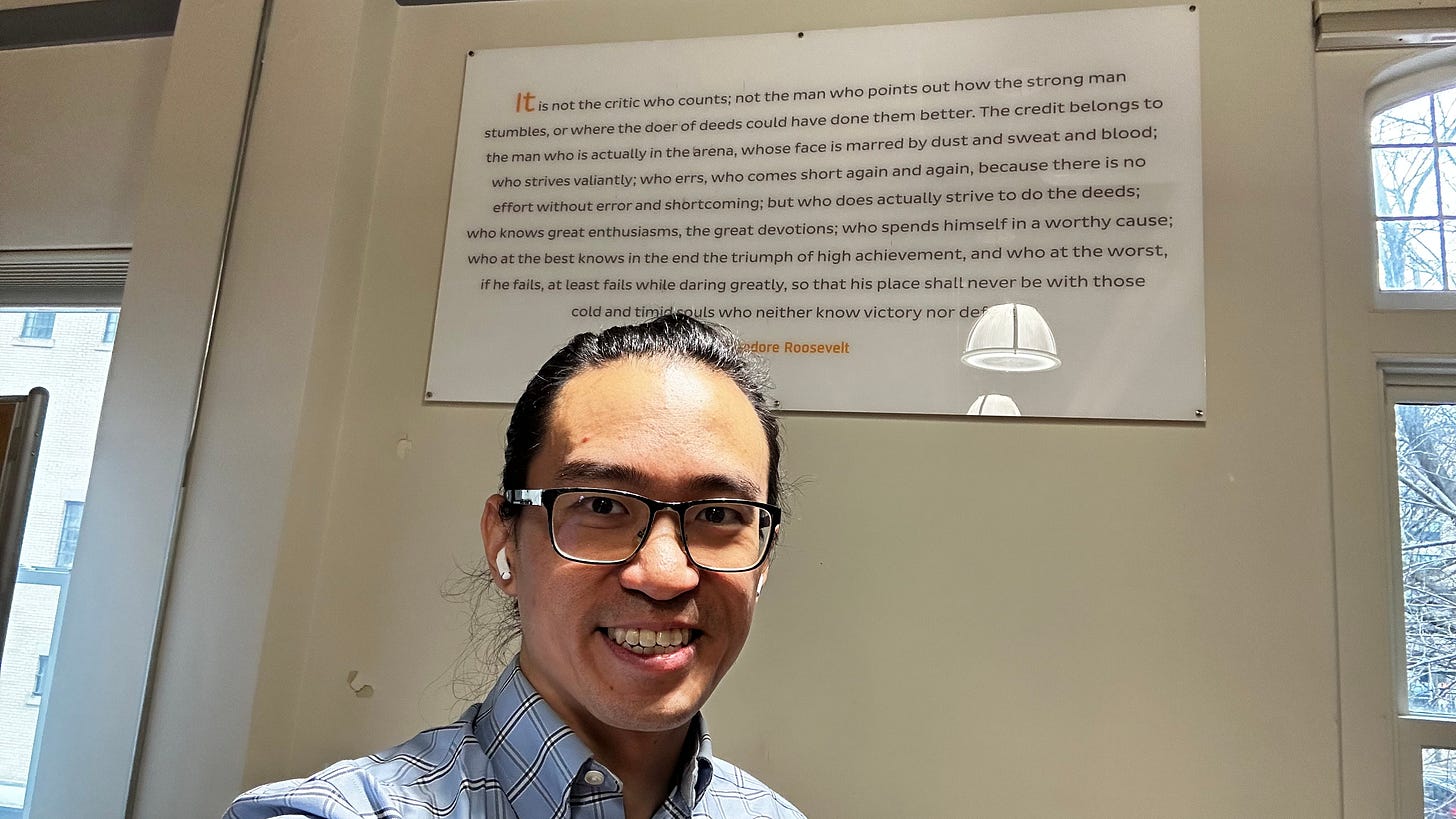
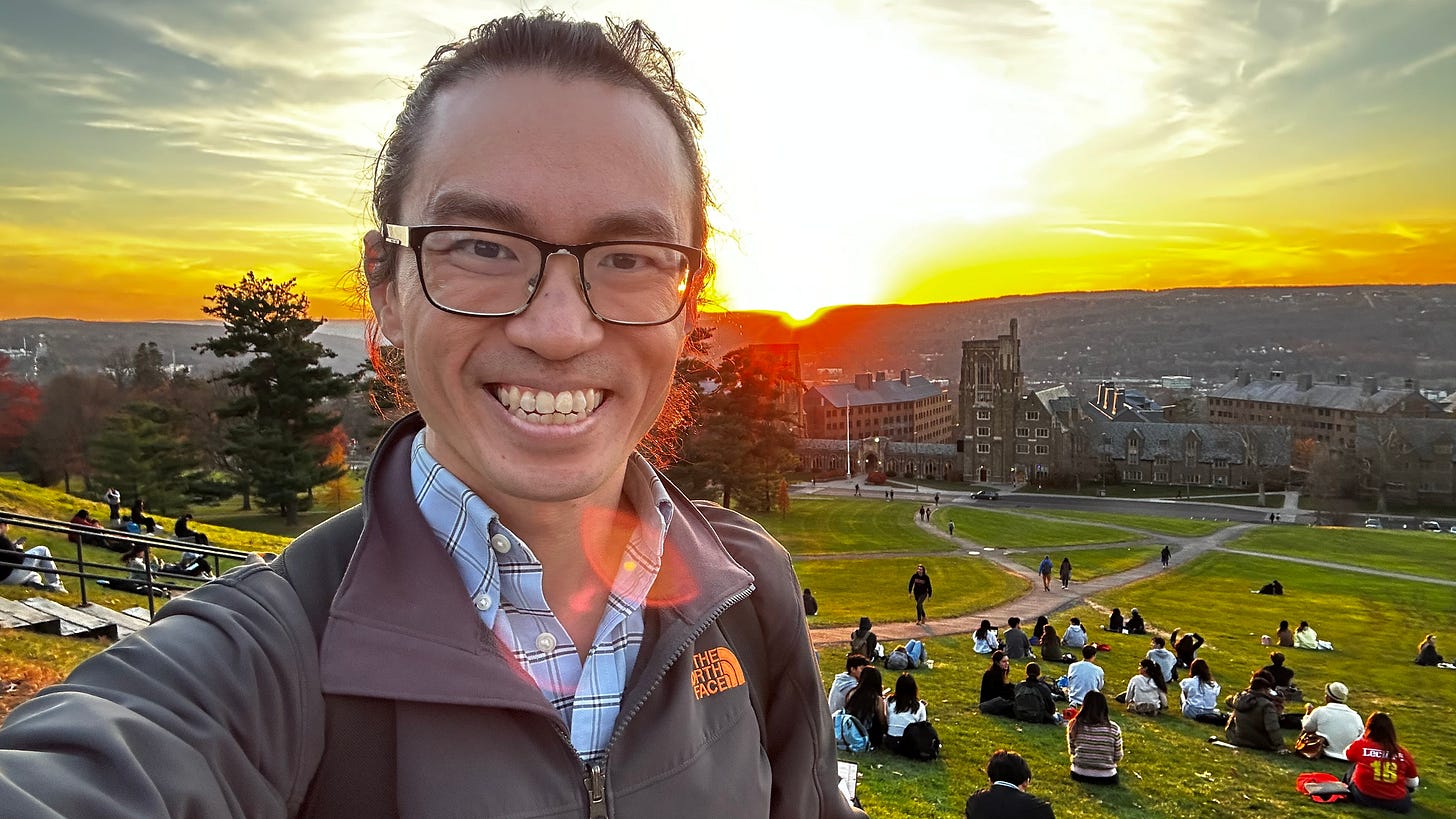
Jeddy! I lived in Ithaca for 12 years -- nice write up. I am sorry we didn't catch up about this wonderful enclave when we met at CTO Regionals in Boston. Next time! -- Carolyn